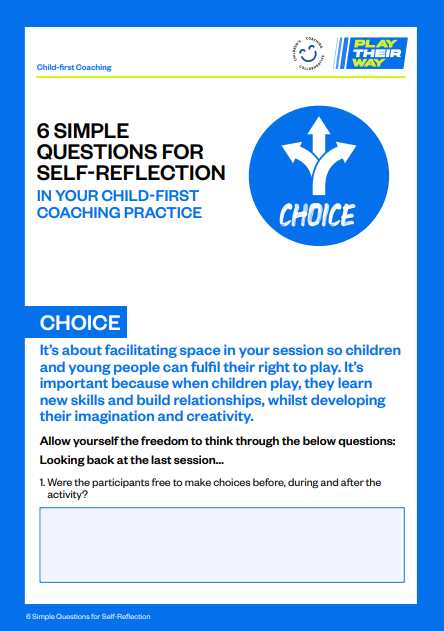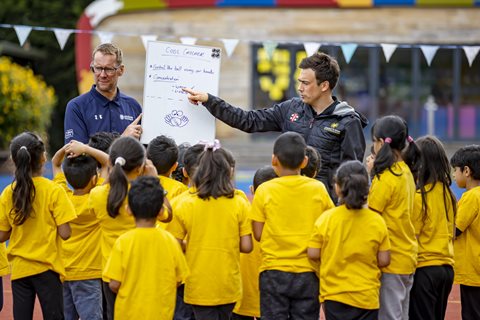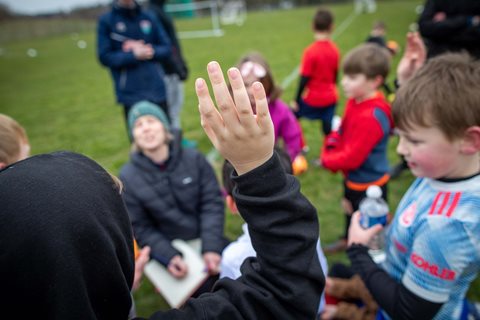Our cookies
We use essential cookies to make our website work smoothly for you. To make sure we're always improving, we'd like to use analytics to track how people use the site. We won't set non-essential cookies unless you give us permission. You can find more information about all the cookies we use in our Privacy and Cookie Policy.
Some cookies are a must for our website to function properly. If you turn off essential cookies, it may affect how you experience our site.
The non-essential cookies we use help us understand how you use our website and make improvements to enhance your experience.
Let's Work Together: What is Co-creation and Practical Tips on How to Deliver it
Lucie Vickers who is Head of Youth Voice at StreetGames and Andy Meudell who is a Youth Manager at a Youth American Football Club in Dunfermline talk about ways they create sessions with young people so they get the most out of the coaching experience.
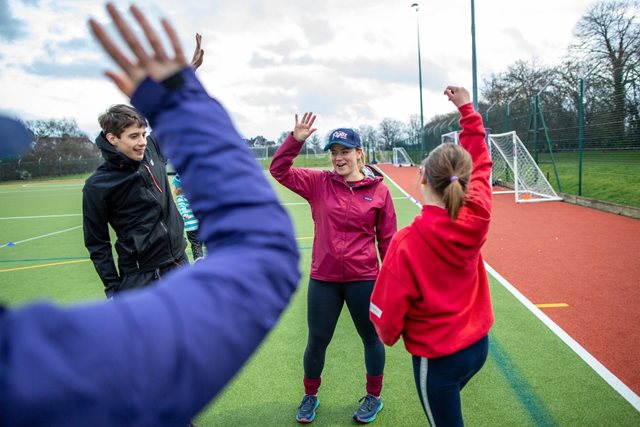
by Carrie Dunn
Gone are the days when the coach's word was law.
A more modern, democratic and Children's Rights based approach to designing a coaching session is co-creation - with the coach as more of a facilitator or a guide to their players.
It makes for a better environment – one where everyone involved is driven to work together and progress, and where the players themselves are more engaged in what they are doing, and understanding why, because they are driving the decision-making process.
Defining co-creation
"Anything that's for young people should be designed by young people - that's the true essence of what co-creation is," says Lucie Vickers, national volunteer and youth action manager at StreetGames, which supports local community organisations to deliver sports activities in their areas through funding, research and insight, practical tools and resources, as well as networking opportunities. Its work champions the voices of young people.
StreetGames operates within what they call the five 'rights' - sport delivered at the right time, in the right place, in the right style, by the right people and at the right place.
Young people can turn up to a session and decide what they want to play and what they want to do, and feel empowered to decide what music they want to play, the format, when they want to take a break,"
Lucie Vickers, Head of Volunteering & Youth Voice at StreetGames
“For example, at a local UsGirls session in Harlesden, London, they ask the girls every week what they want to do that day – it’s delivered by one of their older peers and at the start of the session, all the kit is laid out and in the social time at the start of the session, they have a chat about their options for the session - anything from dance and fitness to badminton and dodgeball.”
That might sound a challenging thing to do – but it’s something that benefits both coaches and players.
"They'll have a better time because they'll have decided what they're doing and what the experience looks like," she says. “It’s about creating the right space and environment for young people to share their thoughts.”
Andy Meudell, coach at Dunfermline Kings youth American football club, got involved in coaching after he took his son along to play. He started making some suggestions to the coaches to improve the sessions, and ended up as the club’s youth manager after getting his coaching qualifications.
“I was on the sidelines and I’m an open, forward person – I talk to people. So I got talking to the kids: one, to get my son more involved and bring him out of his shell, but two, to get to know the guys. They were downhearted – it was the same thing all the time. I started researching American football plays, [activities], techniques – I watched the sport but never played it.
“I said to the coaches, ‘What if we do this?’ and we mixed it up a bit, and the kids took to it – it was great.”
Players taking the lead
It was the starting point for a new way of life at Dunfermline Kings – one which takes its lead from the players.
We had an old playbook, and we ripped it up in front of the kids and said, ‘It’s your team, your place. Everyone needs to design a play and if we can use it we’ll put it in the playbook. If we can’t use it, we’ll put it on the shelf and get back to it when we’re able.”
Andy Meudell, Youth Manager of Dunfermline Kings Youth American Football Club
“I give everybody a chance. We’ve got really good buy-in – it’s easy for me to coach with these kids.”
Andy’s team now have a group chat, where players share ideas for activities and plays that can be put into practice. They also reflect together on the success of those ideas after they have been tried out.
“We’ve got parents involved to set up the committee – with older kids on the committee as well. They’re 16 and they’re doing CVs, job applications, and this is work experience – they can say they’re part of the running of the club, they can organise, they can host meetings.”
Tip – be generous with praise
Andy is keen to give praise to each of his players, picking out the progress they’re making in every session and every match. He also highlights things they need to improve, and they set goals together.
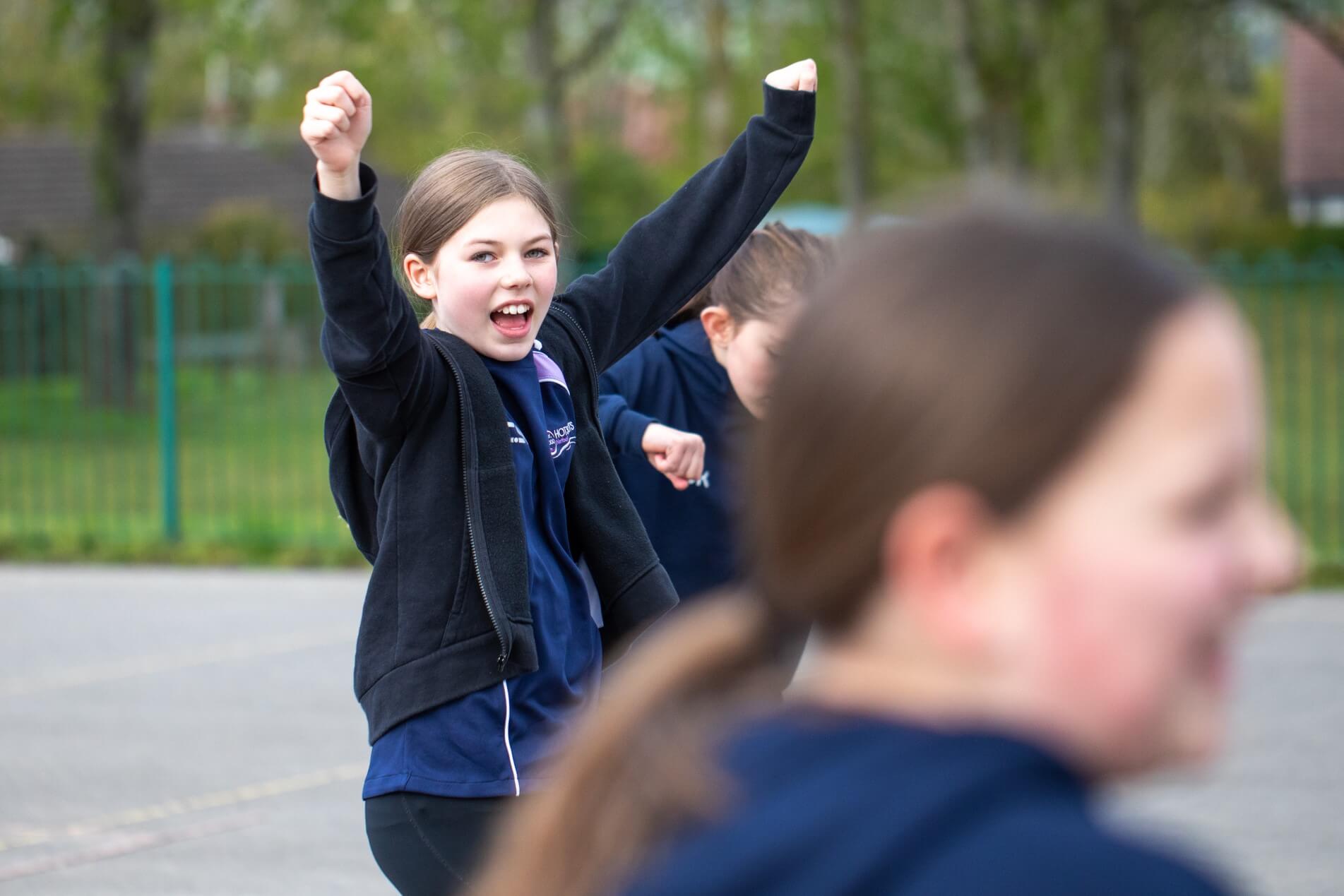
“There’s always a training plan through any form of praise or criticism – whether that be you were brilliant, I can’t find any faults – so can you teach the person next to you how you’re doing what you’re doing? Our kids have a motto – we win or we learn, we never lose.”
And to that end, after a match, everyone – players and coaches alike – is encouraged to pick out one thing they learnt.
Tip – get to know your players
Andy’s pastoral care has extended at times beyond the pitch, spending time with the older teens as they find their feet in the grown-up world. Knowing his players well helps him to understand how to coach them – finding the right ways to motivate them.
“I speak to them, I get to know them. I know what pets they’ve got, I know what they want to do when they leave school.”
He gives the example of one boy who hated the idea of being aggressive on the pitch.
“Every single body type, every single person has got a different role. I put the helmet on and stood in front of him, and said what I want you to do is the snap – when you see the ball thrown back, the guy catches it, that’s called the snap. You go in the centre and snap the ball back, but I’m going to tackle the quarterback, it’s up to you to stop me. I don’t want you to be aggressive towards me, but I want you to protect that man. Then it clicked – I don’t need to be aggressive to play this game, I can protect people.”
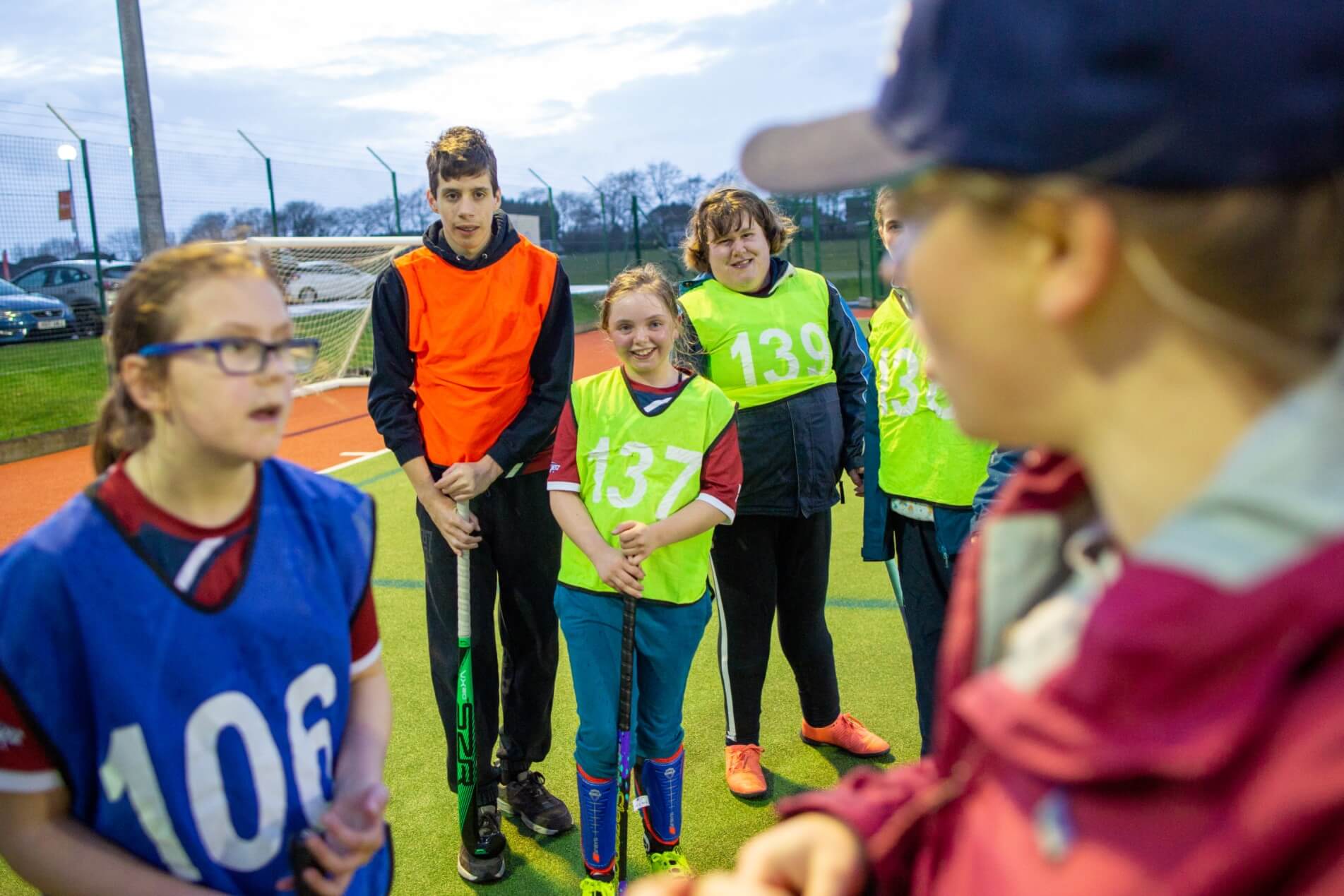
“For new kids coming in, I always buddy them up, not just with one, maybe two or three.” Andy highlights a skill that each of the other players is strong in, and asks them to show the new person how to excel in that. For the next session, he would swap one of the existing group out for another experienced player, so the new player gets to know more and more of their team-mates as they integrate fully.
Tip – encourage them to speak
Andy gives the example of encouraging the young people to ask questions of each other – and if frustration on the pitch starts to spill over, he helps them to understand why, and how to express themselves to each other in a constructive way. If they can articulate what’s annoyed them or what they want to do better, they can then start to articulate how they might achieve that in the future.
Andy says with a grin: “The kids coach themselves.”
Young people having a voice and taking responsibility for their own learning journey, plus having a better time in their sessions and matches because of the ownership they have over it – that’s the value of co-creation.
Other resources you may like...
About the contributors

Andy Meudell is the youth manager of Dunfermline Kings Youth American Football Club. He began coaching in October 2021 and thinks the most valuable thing to remember when working with young people is every scenario is a coaching opportunity.
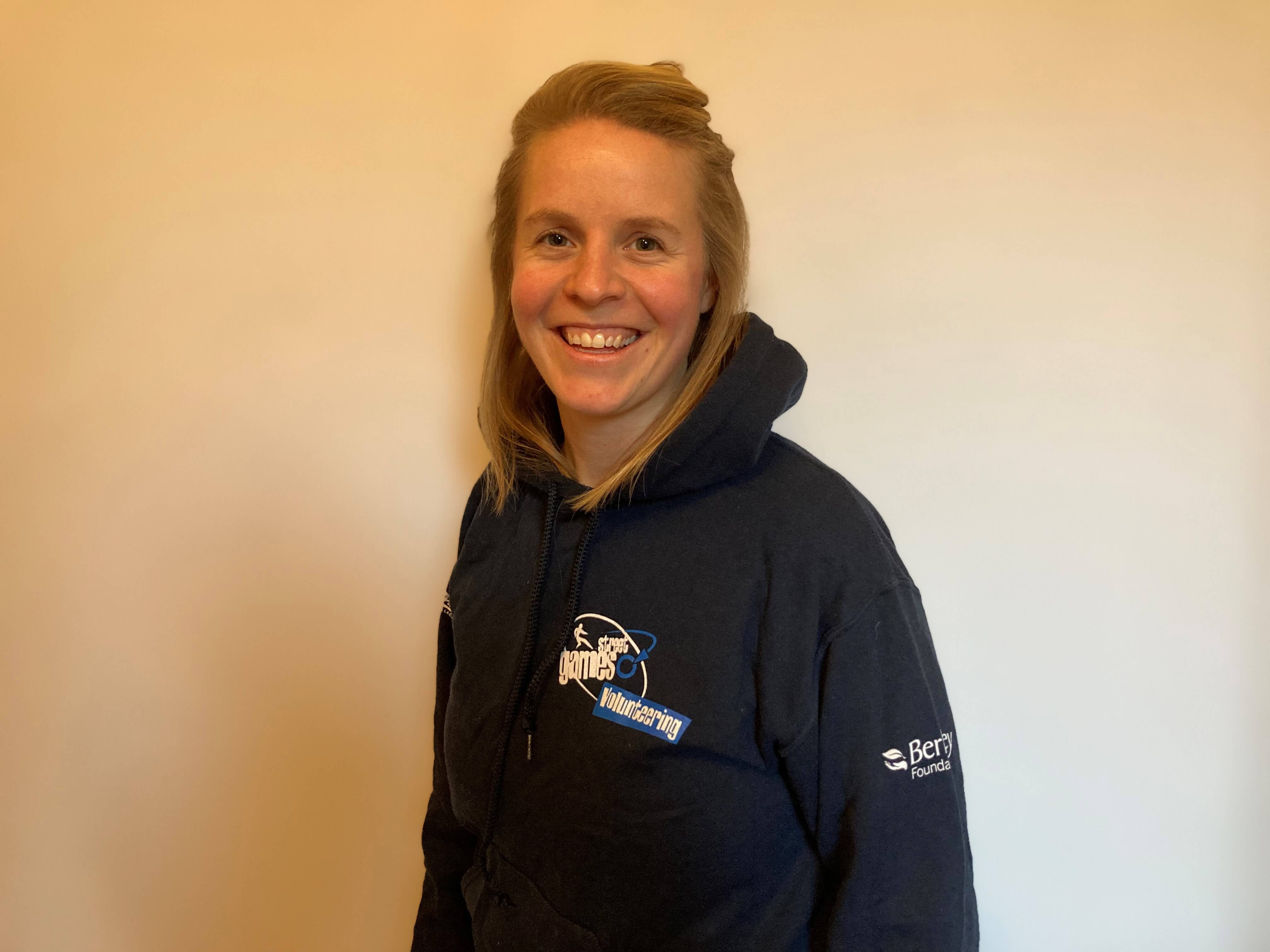
Lucie Vickers has over 12 years of experience working with young people and engaging with them to create positive change through social action. Lucie is an experienced people and project manager, having led large collaborative projects, both in the UK and internationally, working with a range of partners and directly with young people. Lucie leads StreetGames’ national youth voice strategy and supports the development of regional/local programmes as well as supporting the development of volunteering and youth action-based training across the charity.
SHARE THE MOVEMENT
Help spread the word by sharing this website with fellow coaches!

